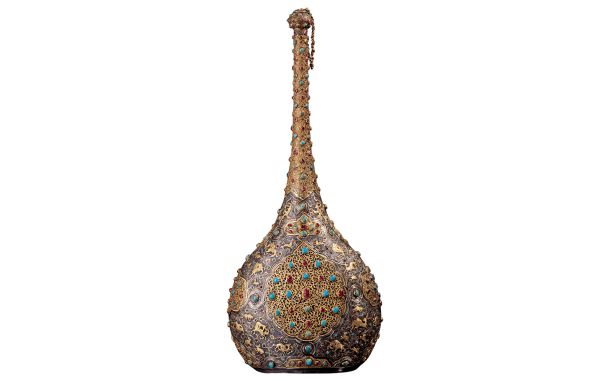Seeing the World Differently Through Gülen
In This Article
-
Fethullah Gülen’s contribution to Islam, to other religions and more widely, was precisely to show how truth could only be found through such dialogue.
-
His enduring gift was the creation of the Hizmet Movement. The very term ‘service’ counters any temptation to reconfigure religion as a focus of power, nationalistic or otherwise.
The second time I met Fethullah Gülen was with a group of academics. We were ushered into a room where he was in dialogue with many different people about Hizmet issues and he paused to welcome us. He immediately stepped down from his chair (the focus of the assembly), inquired who was the oldest of our group and offered him his chair. Despite his back troubles and the fact that he already had sat through a lengthy meeting, he then sat down in a less comfortable chair and spent the next thirty minutes listening to us. We knew he was actively listening because of his face, open, thoughtful, alert to the meaning of our words, and because of his questions.
We had come to talk to him about dialogue and responsibility, and he was showing us what dialogue was about. At its heart is humility, a letting go of power. Focused on love, this approach recognizes and respects the other, not as one among many, but as a unique individual. Trust then grows with mutual assurance, and pathways are found together which respond to God and His creation, embodying hope. All of these virtues were not just discussed but lived in Hocaefendi, showing us, that dialogue is primarily about discovery of the self, each other, our world and God.
Fethullah Gülen’s contribution to Islam, to other religions and more widely, was precisely to show how truth could only be found through such dialogue. It is focused on our relationships, not in intellectual abstraction, enabling us to continually see the world differently (metanoia). This is why autocrats fear dialogue, seeking to silence different voices, and impose their perspective of the world, held in place by fear.
Because of that dynamic Gülen died away from his homeland, which in one sense is a tragedy. He did not get to see the reemergence of democracy in Turkey. In another sense though, the democracy he thirsted for never has and never will flourish fully in our world. This is democracy as dialogue, not simply representation, which seeks to engage everyone in sharing responsibility, a democracy which is always learning, always refreshing itself, always asking questions not just of those in power but of the ordinary person. Gülen gently challenged everybody to serve, to take and share responsibility for each other. Genuine dialogue nurtures freedom through relationships, freedom found in building peace.
His enduring gift was the creation of the Hizmet Movement. The very term ‘service’ counters any temptation to reconfigure religion as a focus of power, nationalistic or otherwise. It looks outwards to share power and create, and so Hizmet’s home was always destined to move beyond national boundaries. But as Gülen taught us, global reach is not about elevation. Hence, he always resisted attempts to elevate himself, as leader or thinker. Instead, he brought people down to earth, the here and now, to the particular in which the universal love of God is to be found. For that, people of all religions and all nations owe him their gratitude.









